Essential Safety Tips for Solo Travelers
Learn how to be safe when traveling overseas alone.

Traveling Alone to a Foreign Country: Essential Personal Safety Considerations
There's something liberating about booking a trip as a solo traveler—you can go anywhere you want and aren't beholden to anyone else's preferences. While this style of travel can offer some flexibility that traveling with a group does not, it can also be stressful as you don't have another traveler to rely on. Doing some extra preparation in advance can give you a boost of confidence and help you to remain safe while traveling abroad.
Pre-Departure Travel Preparations for Traveling Solo
Along with booking your airline reservations and reserving hotels, there are some additional pre-departure preparations that are especially helpful for solo travelers.
- Explore the Culture–The more you can embrace an area's culture, the deeper your travel experience will be. If the predominant language of the area is not one you are familiar with, try to learn some greetings, such as “good morning,” "please" and "thank you" in the local language. Find out about customs like covering shoulders and removing hats in religious buildings so that you can be respectful. Understanding the local culture will enhance your experience and give you important insights to help you avoid unpleasant situations that could escalate.
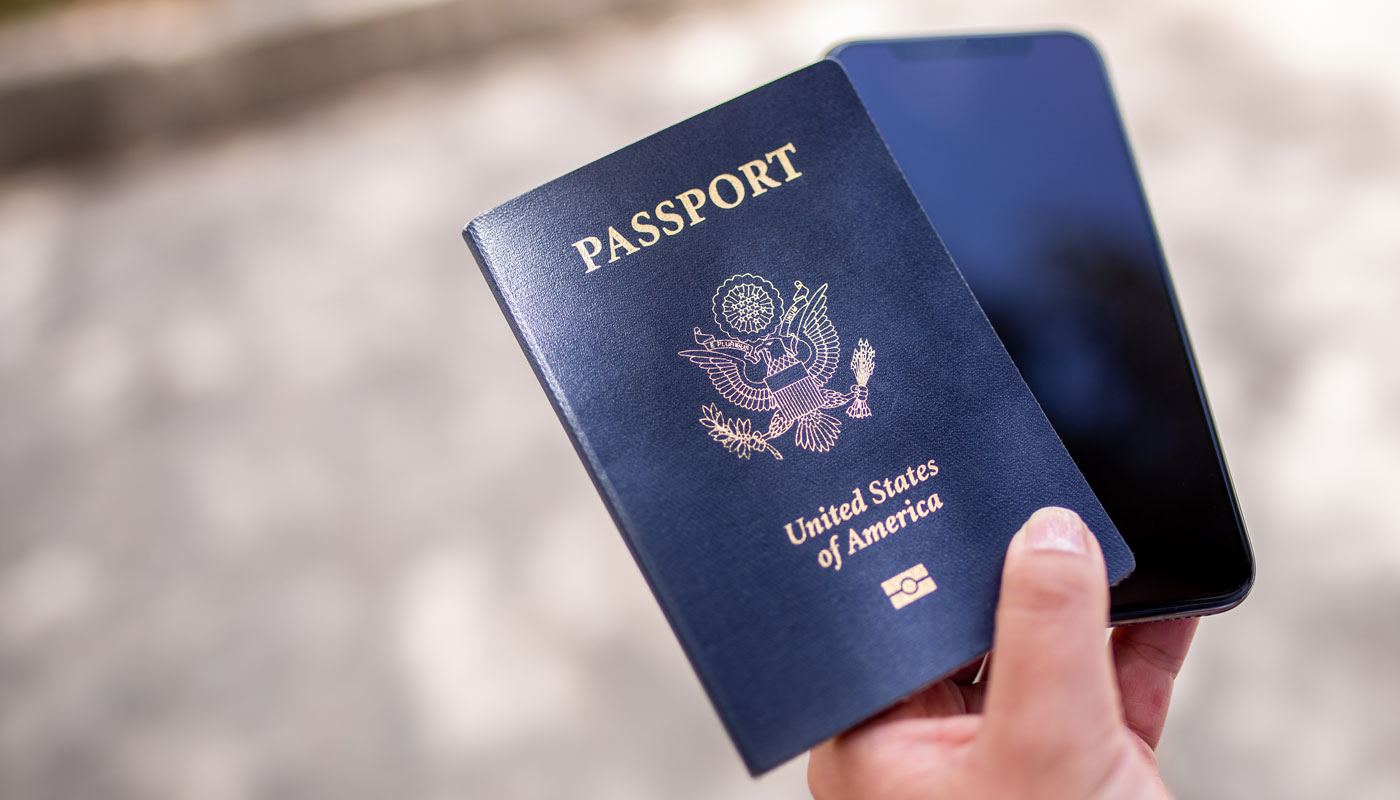 Adobe Images
Adobe Images
- Collect Travel Documents–When traveling overseas, you'll want to ensure you have enough pages left in your passport for the visas you'll get when you arrive at your destination. Additionally, some countries won't let you enter unless your passport has at least six months before its expiration date. Look into visa requirements and allow time for processing. Make copies of your passport, keep photocopies in your luggage and save pictures of them on your phone in case you have a need to replace your passport while traveling. Be aware of what is in our documents before you leave home so you can troubleshoot before you travel. Copies of these important documents will assist you in an emergency.
- Consider Travel insurance–Travel insurance is essential for ensuring safety and security during international solo travel. When traveling alone, you lack the immediate support of companions who could assist in emergencies, making it even more crucial to have a safety net. Travel insurance provides a financial buffer against unexpected events such as medical emergencies, trip cancellations and lost or stolen belongings. Additionally, many policies offer 24/7 assistance services, providing immediate support and guidance in critical moments, which can be invaluable when navigating a foreign healthcare system alone. Allianz is the trusted travel insurance partner of AAA, ensuring comprehensive coverage and peace of mind during your travels.
- Gather Medications & Obtain Vaccinations–Some countries require specific vaccinations (like malaria) to be completed before travel. In addition, you might want to obtain prescription medications like antibiotics from your physician to bring with you if you'll be traveling to remote destinations. Bring enough of your daily prescription medications to last you through your journey, plus some extra to account for travel delays. Keep these in your carry-on baggage. Keep a photo of your prescription on your phone in case you need to show a medical professional.
- Compile Emergency Contact Information–While you won't likely need it, it's good to determine where the closest U.S. Embassy or consulate is in case you need to replace your passport or request other assistance. Keep the address and contact information in your phone and written down in your luggage and/or room in case you lose your phone. Before traveling, look up the local emergency numbers for the countries you'll be visiting, as the equivalent of 911 can vary. Save these numbers in your contacts for quick access in case of an emergency. This preparation ensures that, should you encounter any urgent situations, you'll be able to promptly reach local emergency services.
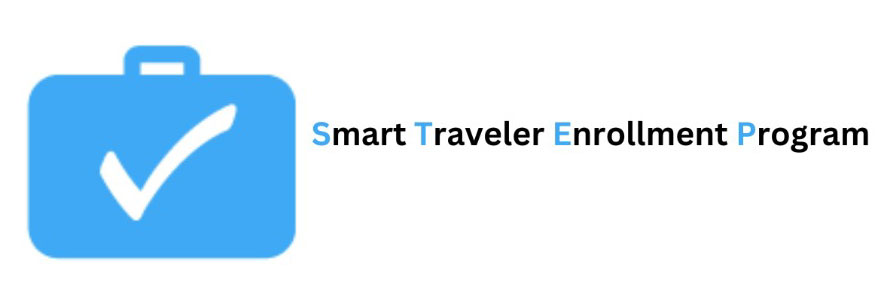 USSD
USSD
- Enroll & Stay Safe–For extra protection, travelers can enroll in the State Department's Smart Traveler Enrollment Program (STEP) before leaving the U.S. This program is designed to alert travelers about any potential safety conditions in their destination and help the U.S. Embassy contact them in an emergency.
- Identify Your Gear–Make sure your luggage has your cell phone number and email address on your luggage tag and on a label inside your bag in case the luggage tag is lost. Colorful bags or bag tags are particularly easy to identify among the baggage carousel's many black and gray bags. Packing an Airtag or Tile Bluetooth tracker in your checked luggage is also helpful in tracking it down if it gets lost by the airline. Lost luggage can happen at the airport, hotel, or in transport. If you have a way to track or easily identify your personal belongings it will expedite any issues you might encounter.
- Share Your Itinerary–Once you have your travel itinerary planned, share it with a trusted person at home and plan to check in with them periodically. This way, someone can watch out for you while you are away. If possible, see if they can track your phone while you are away so that in case of an emergency someone outside of the country will know where you are or have been. Letting others know your whereabouts is good planning for a stress-free trip abroad.
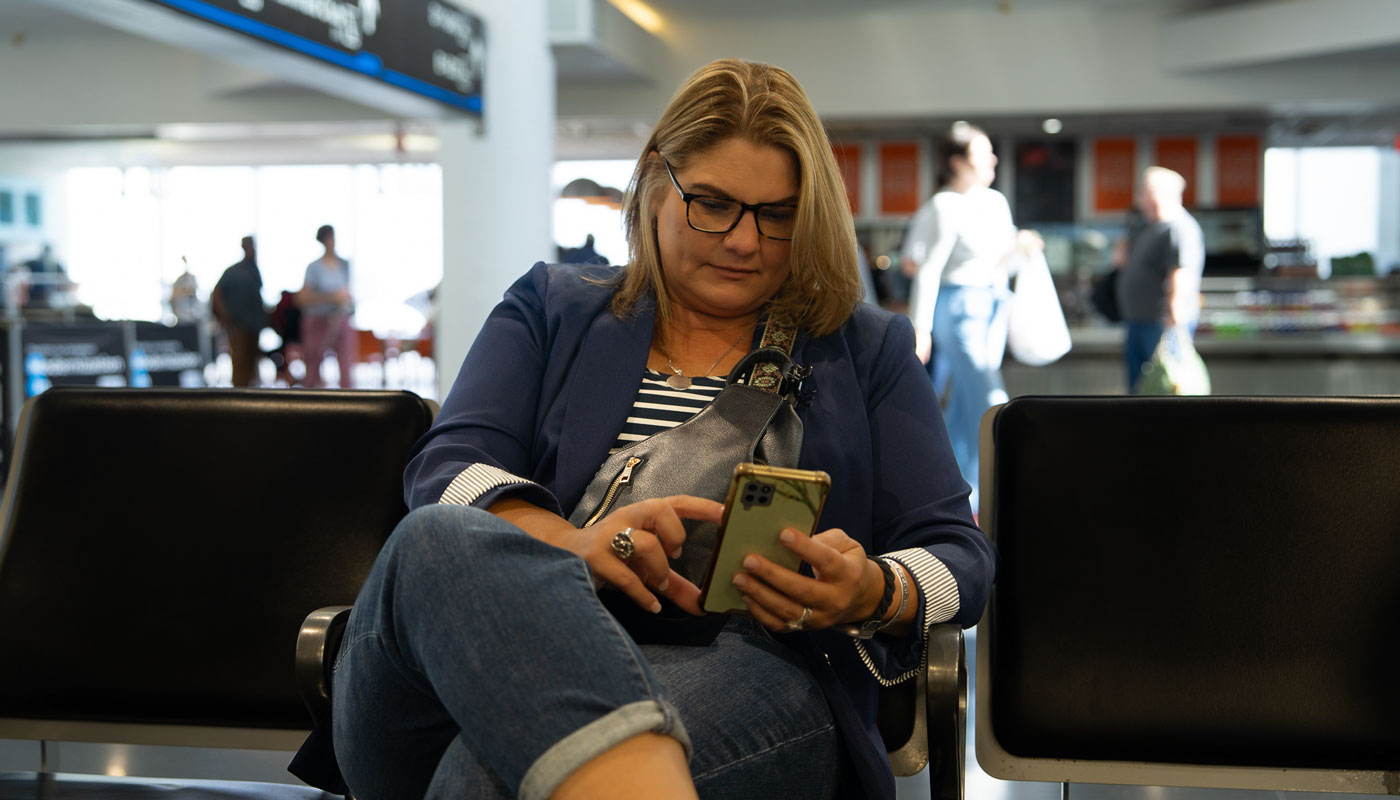
Solo Safety at the Airport
When you arrive at the airport, you must have your passport with you, so be sure to pack it in your carry-on bag. You will need to show it at check-in and sometimes also at the gate before you board the plane.
Once you arrive at your international destination, you'll proceed through immigration and customs and gather any checked baggage.
- Immigration: This is your first stop when you arrive at your international destination. You must be ready to show your passport, explain the reason for your visit, and provide information about where you are staying while abroad. Sometimes, you'll also need to show you have a departure ticket. Some countries prohibit travelers from wearing hats or sunglasses and using cell phones in the immigration line, so look for posters displaying this information.
- Baggage Claim: After immigration, you will come to baggage claim. If you've arrived at your final destination, this is where you will claim your checked luggage. If you just have a stopover, your airline will let you know if you need to pick up the checked luggage here and recheck it, or if it is checked through to your destination.
- Customs: Different countries have different customs requirements and procedures. Some will require you to complete a written form. Countries limit what you can and cannot bring through customs, so it's essential to be aware of this before proceeding. For example, many countries do not allow you to bring fresh fruit or meat with you, so you'll want to ensure you don't have these items in your bags.
- Getting Money: Gone are the days when we needed to order traveler's checks or obtain foreign currency before we left the U.S. These days, you can travel to another country and quickly obtain foreign currency when you arrive. Traveling with a few credit and debit card options is a good idea in case one is not accepted, or your card gets lost or stolen while you are there. It's also good practice to use a card that does not have foreign transaction fees. Once you've proceeded through customs, you'll find many currency exchanges. These typically have poor exchange rates and your best bet is to find an ATM to withdraw money instead. The ATM will likely offer you the option of being charged in your home currency or the local currency. You always want to select the local currency as it will help you to avoid high exchange rates.
Solo travel is trending. Unlock expert tips and exclusive deals to plan your unforgettable adventure across Europe, Asia and beyond.
Read More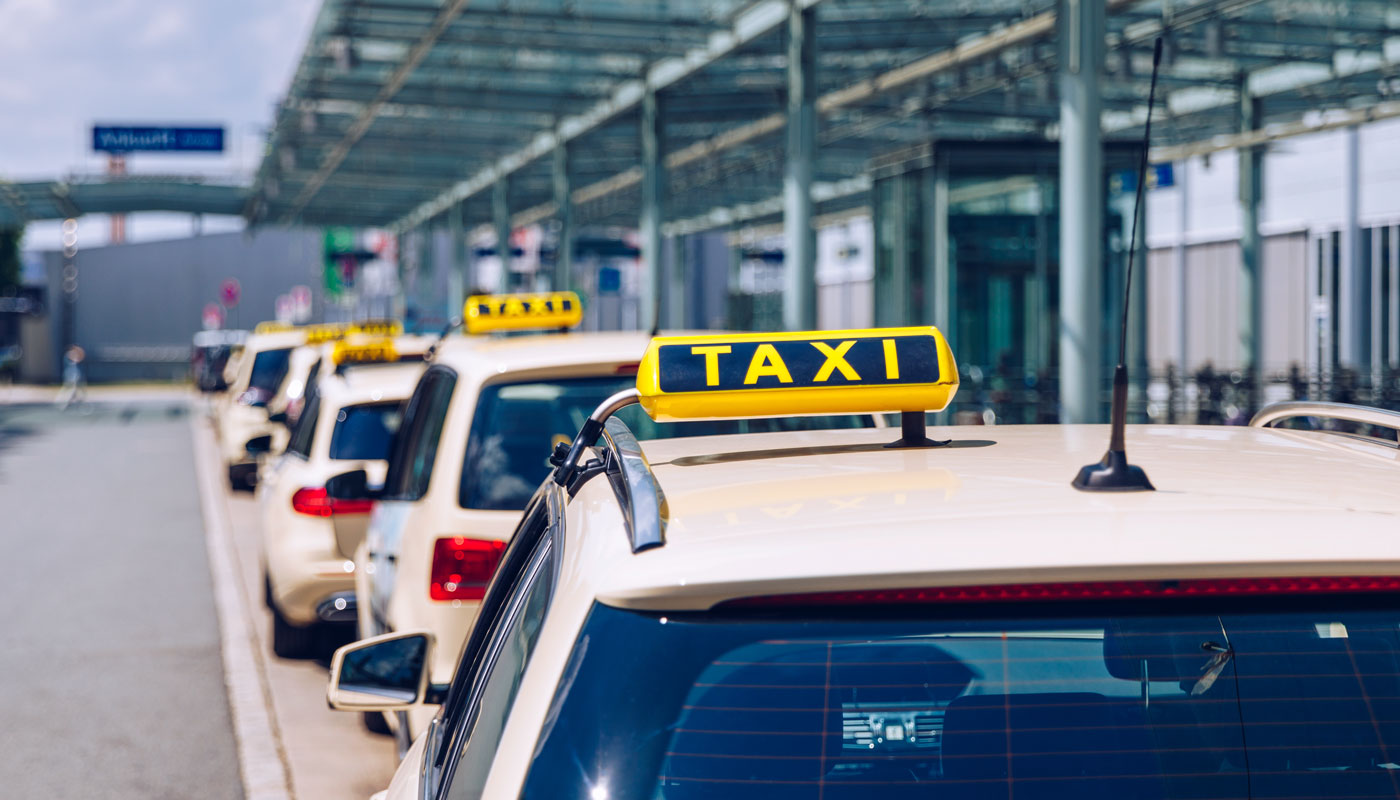 Adobe Images
Adobe Images
Solo Safety Practices When Leaving the Airport
You are often tired and jetlagged when you arrive after a long flight, but you need to secure transportation to your hotel. This is a situation when it is easy for solo travelers to get confused and taken advantage of. If you don't pay attention, you can be price gouged by unofficial taxi drivers, which is an unfortunate way to begin a trip.
These are some tips for making your airport transportation experience as smooth as possible:
- Book Prearranged Transportation: In most countries, you can book a driver who will be waiting for you to arrive at the airport. This allows you to know the transportation fee in advance. You can ask your hotel for recommendations or book online through reputable sites. Be sure to verify the driver and the company before getting in the vehicle.
- Use Official Taxis: If you need to use a taxi, only use official taxi stands and avoid unmarked taxis. Provide your destination and ask the driver for the fee before entering the cab. Many large cities like Paris have established airport taxi fees, so investigate this before you travel so you know what to expect. Confirm that the driver can accept the form of payment you wish to use. If you have trouble communicating with your driver, use Google Translate or another translation app.
- Keep Control of Your Belongings: Before leaving the airport, ensure all your luggage is loaded in the taxi. Keep your valuables and important documents with you and out of sight.
- Share Your Location: When you take a taxi as a solo traveler, sharing your location with a trusted contact back home is helpful. You can do this by texting them or sharing your location via WhatsApp or Find My.
- Follow Along on GPS: By following along on GPS while you are underway, you can make sure the taxi driver is taking you to the correct location. If you won't have access to international cell service while in the taxi, you should download your location's Apple or Google map in advance to access it while offline. Watch for landmarks along the way so that you can reroute the driver if necessary.
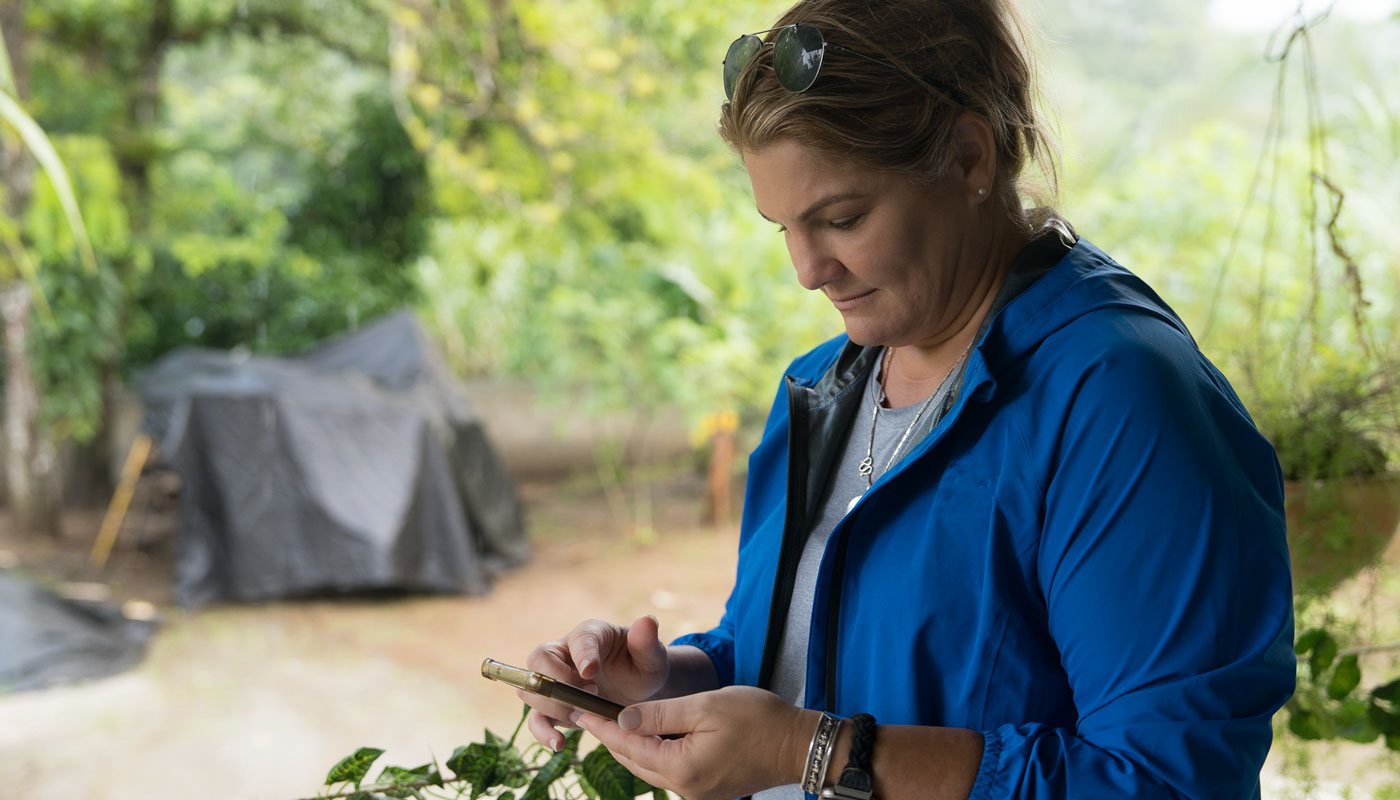
Solo Travel Communications While Abroad
If you plan to use your cell phone while you travel, you'll want to find out what your cell phone carrier provides for international coverage. Some offer coverage at a daily rate, while others have monthly plans. If you have a newer, unlocked cell phone, the least expensive option is often to purchase an eSim that will allow you to tap into the local cellular network at a discounted price.
If you need to connect to the Wi-Fi when you arrive, use a VPN can add an additional layer of security. It's always best practice to avoid sharing personal information or logging in to your bank account on any public network. Avoid suspicious-looking popups; log off and change your passwords if something seems wrong.
It can be helpful to download WhatsApp before you travel, as non-Americans predominantly use this app for texting and other forms of communication. For example, it can help you make restaurant reservations or meet with drivers you have prearranged.
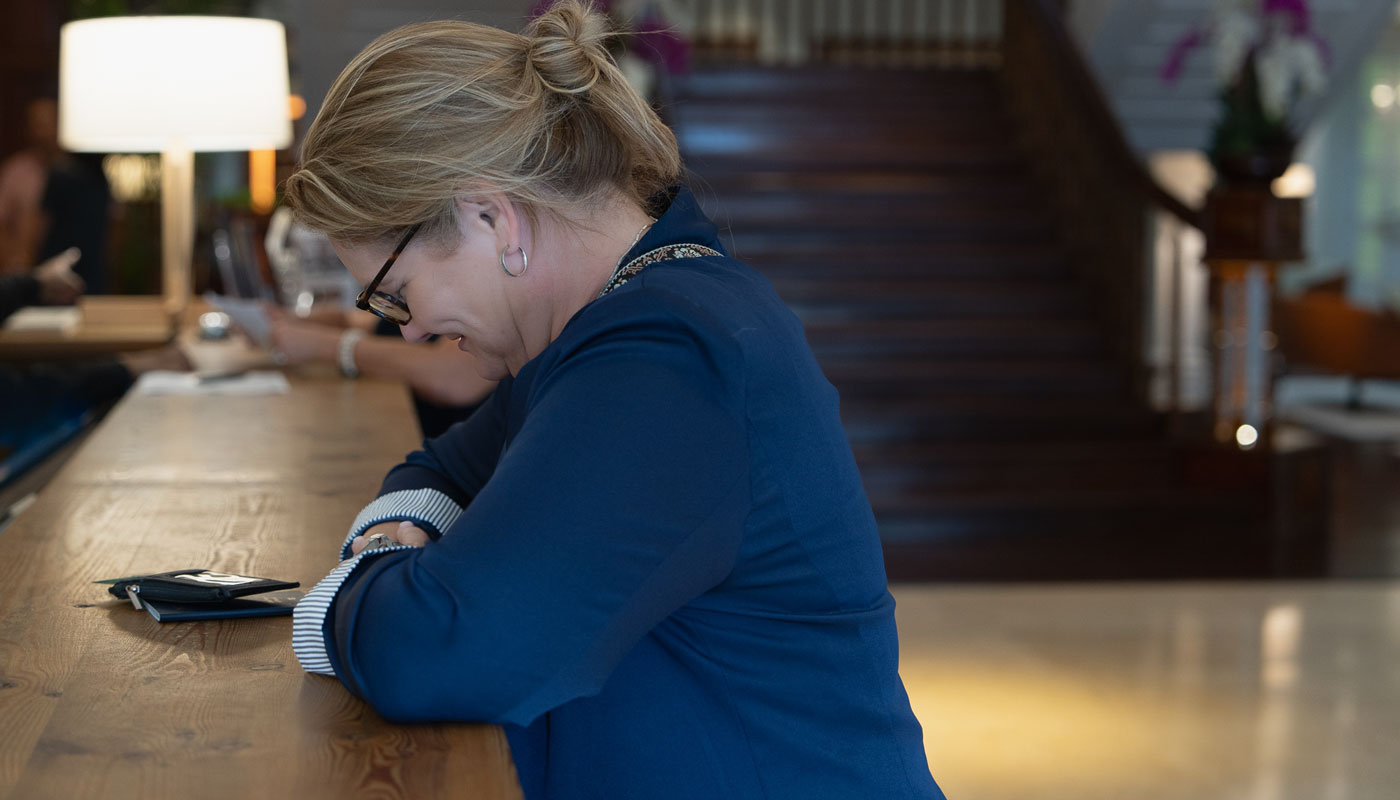
Solo Travel Safety at the Hotel
When you arrive at your hotel, you must provide your passport and a credit card. Rooms on higher floors and away from stairwells or emergency exits can provide extra security for solo travelers. Keep your room number to yourself, and don't tell anyone you are traveling alone.
When you enter your room, check that security features like door locks, window locks and peepholes are in place. Always engage the door locks and the security latch while in your room. If you hear a knock, do not open the door if you aren't expecting someone. Use your room's safe to store high-value items like your passport, extra credit cards, cash, jewelry and electronics. Locate your closest emergency exit in case you need to access it.
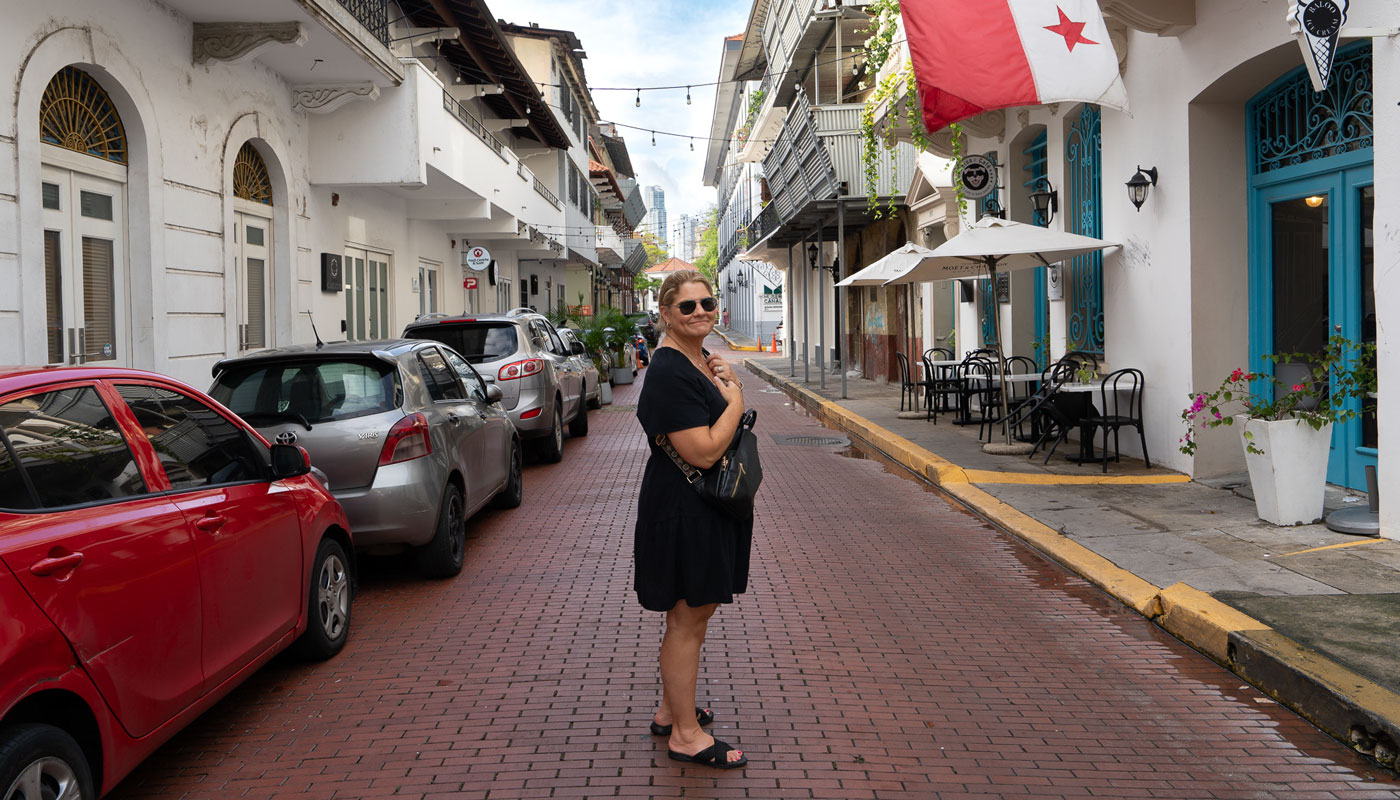
Walking Around a New Location Alone
You've made it to your destination—now the fun can begin! Exploring a new city as a solo traveler can be a liberating experience, and you'll want to ensure you remain safe.
- Research the area you are visiting for any traveler alerts regarding safety or ask your hotel's staff if there are areas you should avoid.
- Be especially alert at nighttime and avoid deserted locations.
- Invest in a belt wallet or crossbody bag if the area you are visiting is known for pickpockets. These allow you to keep your money and personal belongings close to your body while you travel.
- Avoid wearing headphones while you are walking around so that you can be alert regarding your surroundings.
- Dress appropriately for the culture you are visiting and comply with any dress requirements, such as removing hats inside buildings or wearing clothes that cover shoulders and knees. Some countries ban camouflage clothing, so it's best to avoid it.
- Avoid overt displays of wealth and leave expensive purses and jewelry at home.
- Always keep your cell phone in your control. Avoid leaving it on your table while you are dining, as this can be an opportunity for theft.
Much of the solo traveler experience involves trusting your instincts and avoiding situations that might put you in danger. You can't always predict what's going to happen when you travel, but arming yourself with knowledge will help you face obstacles along the way.
Embrace the journey! This is an experience that only you will have and it's one you won't soon forget.